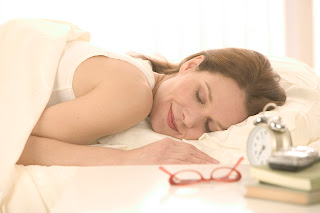WEB MD Sleep Expert Explains the Reality of Sleep Disorders Part II
 Kevin: Well, that's fantastic. I must get into that. [Laughs]
Kevin: Well, that's fantastic. I must get into that. [Laughs]
Dr. Breus: Absolutely. Some people like to know what are some of these big problems that everybody's talking about. So, first of all, about fifty-three percent of people say that they often wake up not feeling refreshed. Thirty-six percent of people say they have trouble falling back to sleep. And then just thirty-one percent of people say they just can't fall asleep in general, [just] insomnia, is what we call it. Again, kind of interesting but more often than not, people are saying it's not the falling asleep, even though a third of people have a problem with that, it's the staying asleep.
Kevin: Okay.
Dr. Breus: That seems to really get to them.
Kevin: Okay.
Dr. Breus: Now, the other thing that's kind of fascinating is looking at who has these problems. Believe it or not, women have a tendency to report sleep problems more than men do. Now, I think there are a couple of different reasons for that. One of the different reasons I feel is that women, first of all, they have a reasonably better "in touch" sense with their body. They know and understand their body. They listen to their bodies, but they also have a greater likelihood to talk about these issues.
Kevin: Sure.
Dr. Breus: Not necessarily just with their friends, but also with their physicians, their therapists, whoever happens to be speaking with them. And so, interestingly enough, eighty-three percent of the people who are talking about these are women.
Kevin: Guys are just like "I'm okay". [Laughs]
Dr. Breus: Right, it's kind of like this bravado "Hey, I don't have any problems. All I need is five hours of sleep. Rrrr".
Kevin: [Laughs]
Dr. Breus: You know. And the truth of the matter is, that's just not the case. You know, I was with executives from Fortune 100 to Fortune 500 companies all over the world. And, you know, men, women, doesn't really matter. What I find is men come in and they say "You know, I'm tough, blah blah blah. But when you get them into a room and you talk to them, they're in trouble. They're having a really tough time because they're not eating right, they're not exercising while they're on the road, and they're certainly not sleeping right. And that's affecting their performance not only at work, but at home.
Kevin: Right.
Dr. Breus: And that's a big deal. And we're also seeing, interestingly enough, there's sort of a bimodal distribution where we're seeing a lot of people between the ages of eighteen and thirty-four having sleep problems. But then also in my practice, I'm seeing people who are in the forty-five and up range having sleep problems as well. So it really seems to be the two distributions which probably speak to the fact that there are two different types of sleep problems that are probably available in those groups.
Kevin: What do you speculate those to be?
Dr. Breus: I think the speculations would probably fall that the younger group... we're going to see more people with insomnia type problems?
Kevin: Okay.
Dr. Breus: And what I call disordered sleep.
Kevin: Okay.
Dr. Breus: See, there's a big difference between a sleep disorder which is a form of diagnosis like insomnia or [apnea] or [narcolepsy] and what I call disordered sleep, which is just wake up and "I don't feel so hot".
Kevin: Right.
Dr. Breus: I think insomnia and the disordered sleep fall in the eighteen to thirty-four age group range. When you start to get above forty-five, I think that's where we start to see a greater preponderance of sleep apnea.
Kevin: Mm Hmm.
Dr. Breus: Most of us seem to go throughout any particular age range but restless life syndrome pops up huge in the older population.
Kevin: Okay. Is sleep apnea due to being overweight or obese?
Dr. Breus: Well, here's the interesting thing -- there are multiple factors for sleep apnea. Let's just go into, real quickly, what is sleep apnea.
Kevin: Mm Hmm.
Dr. Breus: Sleep apnea is where you stop breathing in your sleep. Okay. Generally speaking I like my patients to breathe...
Kevin: [Laughs]
Dr. Breus: Okay, and so it's good when they keep breathing all night long. Now the truth of the matter is this -- you won't stop breathing in your sleep and not start back, okay. I had a funny time. I was sitting with a patient. I'm explaining her results, studying with her. And I sat down with her and I said "You know, Mrs XYZ, I want to let you know that you stopped breathing in your sleep over two hundred times last night".
Kevin: Wow!
Dr. Breus: You know what she said to me? "Did I start back up?"
Kevin: [Laughs]
Dr. Breus: Now that's pretty classic. But that's the level of education that we have to get to here in teaching people what's going on. So the answer is -- yes, she did start back up. And would you believe me if I told you that her sleep apnea was only moderate, and she stopped breathing over two hundred times a night?
To read the rest of this transcript as well as access more information by health experts on abundance, optimum health, and longevity just like Dr. Michael Breus please visit (http://fountainofyouthworldsummit.com) .



Comments